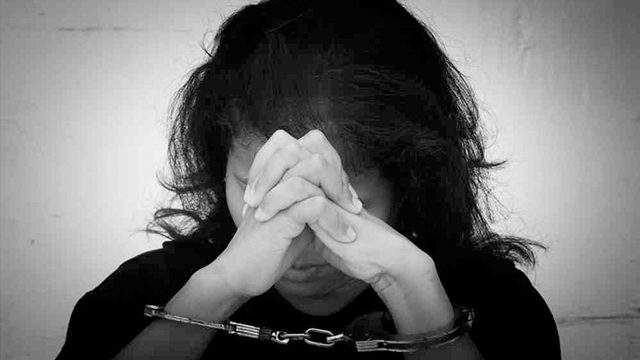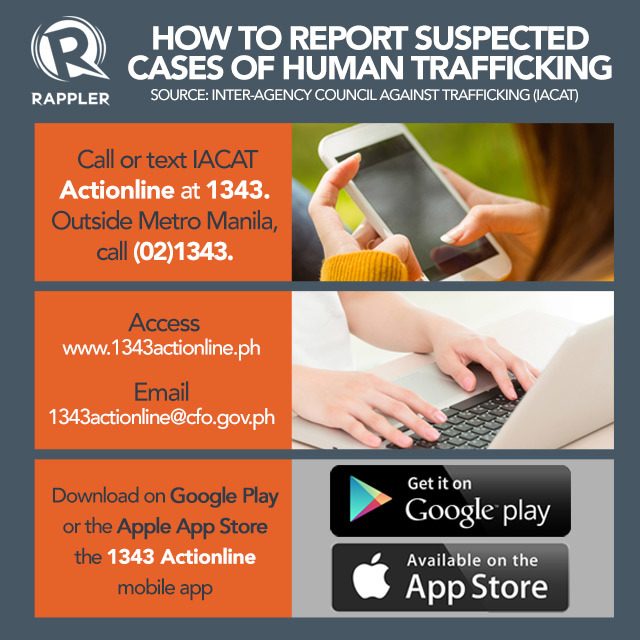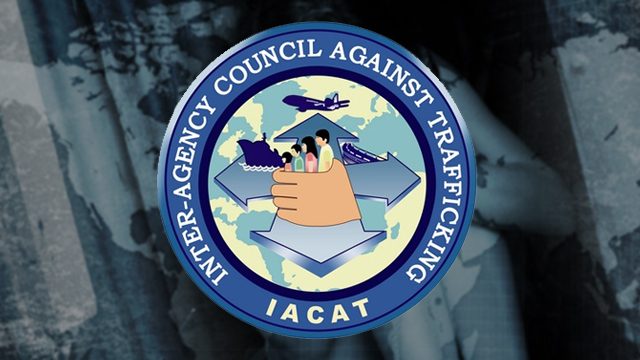SUMMARY
This is AI generated summarization, which may have errors. For context, always refer to the full article.

MANILA, Philippines – Human trafficking is a rampant problem in many towns, with complex roots in poverty and in human greed, according to the Department of Social Welfare and Development (DSWD). (READ: Human trafficking 101: What trafficking is all about)
“The deception, illegal transfer, and abuse of Filipinos simply looking for better opportunities in the city and abroad are realities that we cannot ignore. We have to find more ways to combat and prevent it from recurring,” said DSWD Secretary Corazon Juliano-Soliman in a statement.
Republic Act 9208, or the Anti-Trafficking in Persons Act of 2003, defines human trafficking as “the recruitment, transportation, transfer or harboring, or receipt of persons with or without the victim’s consent or knowledge, within or across national borders by means of threat or use of force, or other forms of coercion, abduction, fraud, deception, abuse of power or of position, taking advantage of the vulnerability of the person, or, the giving or receiving of payments or benefits to achieve the consent of a person having control over another person for the purpose of exploitation which includes at a minimum, the exploitation or the prostitution of others or other forms of sexual exploitation, forced labor or services, slavery, servitude or the removal or sale of organs.” (READ: Looking back: First anti-trafficking law in Southeast Asia)
Reporting cases of human trafficking
To enforce RA 9208, an Inter-Agency Council Against Trafficking (IACAT) was created under the law, with the secretary of justice as chair, the DSWD secretary as co-chair, and the following as members:
- Administrator of the Philippine Overseas Employment Administration,
- Commissioner of the Bureau of Immigration,
- Director-General of the Philippine National Police,
- Chairperson of the National Commission on the Role of Filipino Women, and
- Non-governmental organizations representing women, overseas Filipino workers, and children.

“Don’t be a victim. The most common ‘modus operandi’ of human traffickers is to entice parents to allow their young daughters to leave the province and work in Manila as domestic helpers with promises of huge salaries but end up in other jobs not as promised. Another is offering the victims high paying jobs abroad with fake visas, marriage certificates, and other travel documents to facilitate their exit,” explained Soliman. (READ: Human trafficking: A game of cat and mouse in a vast Celebes sea)
As co-chair of the IACAT, the DSWD, in partnership with member-agencies of the Council, provides the Recovery and Reintegration Program for Trafficked Persons (RRPTP), a comprehensive program that ensures the provision of adequate recovery and reintegration services to trafficked persons.
Recovery program for trafficked persons
Utilizing a multi-sectoral approach, it delivers a complete package of services that will enhance the psychosocial, social, and economic needs of the victims. It also enhances their awareness, skills, and capabilities, and supports their families and the communities where they will eventually return to.
The RRPTP also improves community-based mechanisms that ensure the recovery of the victims, and prevent other family and community members from being victimized.
“To differentiate between legal and illegal recruiters, always check the validity of the documents being presented,” stressed Soliman.
As of November 2015, the DSWD has assisted a total of 1,870 victims through the RRPTP.
DSWD has spent more than P17 million to help them in their rehabilitation and reintegration process with their families and communities.
Recently, DSWD has added additional services under the program such as medical and educational assistance for victims and their families.
It also provides auxiliary services such as board and lodging, documentation, and other incidental expenses to those with on-going cases.

Convictions
Meanwhile, the IACAT reported a total of 224 convictions since 2010, with 247 persons convicted. (READ: Human trafficking convictions: How has government fared?)
The latest conviction was handed down in November 2015 by Presiding Judge Ralph Lee of the Quezon City Trial Court, sentencing the perpetrator to life imprisonment for violation of Section 4: Acts of Trafficking in Persons, of RA 9208.
Here’s how to report suspected cases of human trafficking.
How can communities help #FightTrafficking? Tell us on X. – with a report from Lou Gepuela/Rappler.com
Add a comment
How does this make you feel?







There are no comments yet. Add your comment to start the conversation.